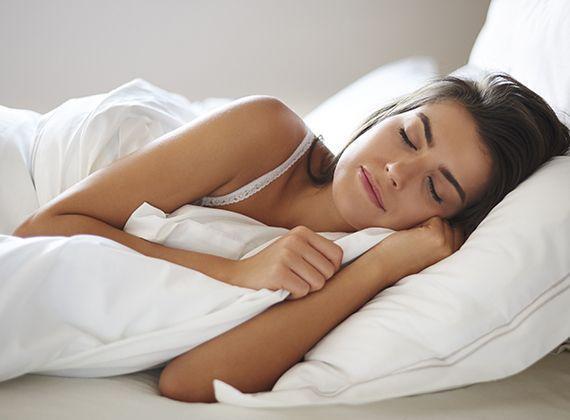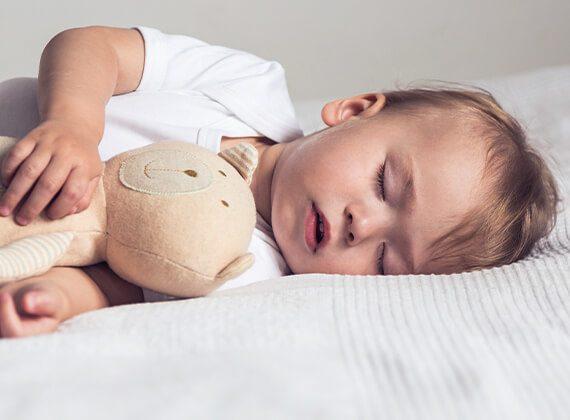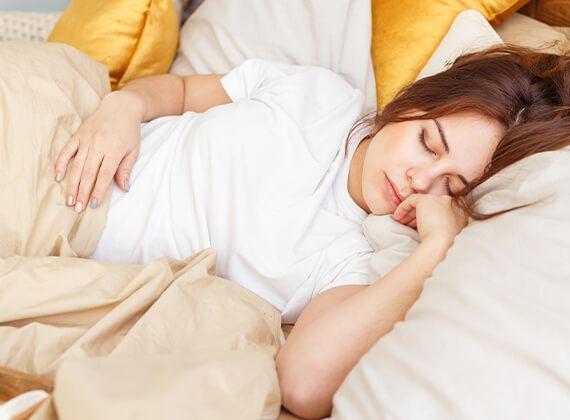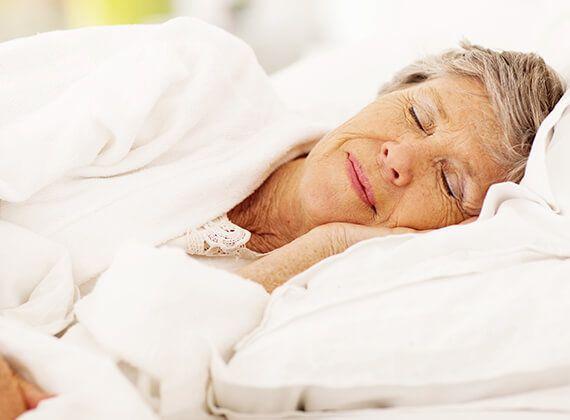Sleep needs vary for adults, find some helpful advice here and find out more about your sleep needs.
Taking time to fall asleep, waking frequently and having trouble going back to sleep? Feel groggy and lethargic in the morning? Do you feel drowsy during the day?
Sleep needs vary. In general, most healthy adults need seven to nine hours a night. Some people can function on as little as six hours; others need 10. And, contrary to the popular myth, the need for sleep doesn’t decline with age.
Dr Alex Bartle New Zealand sleep expert and director of Sleep Well Clinics says sleep is a vitally important, active part of our lives.
“As we all know when we miss even one night of sleep, it can affect all aspects of our life, from physical health to emotional and psychological health.”
Issues that can arise include problems with immunity, tissue repair delays and even a lift in exposure to cancer while hypertension and diabetes are also more common in those who sleep poorly Dr Bartle says.
Poor sleepers can also suffer psychologically with depression, poor memory and impaired decision making all possible factors. People can become irritable and somewhat short tempered when they sleep poorly.
“A bed that is comfortable for each individual is most important. In general, bigger is better, in that you can have your own sleep space, but still be with a partner in the same bed. Each individual in a partnership is likely to have individual requirements for comfort,” Dr Bartle says.
How do you measure how much sleep you truly need? If you have trouble staying alert during boring or monotonous situations when fatigue is often ‘unmasked’, you probably aren’t getting enough good quality sleep. Other signs are a tendency to be irritable or difficulty in concentrating or remembering facts.
SLEEP TIPS:
- Ensure at least an hour wind down time before bed, reading is ideal, but avoid use of computers, iPads and other electronic media.
- Avoid caffeine, nicotine and alcohol in the late afternoon and evening.
- Exercise regularly, but not within three hours of bedtime.
- If you have trouble sleeping, don’t nap during the day.
- Go to bed when sleepy.
- Make your sleep environment as pleasant, comfortable, dark and quiet as possible.
- Establish a regular, relaxing bedtime routine to tell your brain it’s time to sleep.
- Avoid looking at the clock all night and if you can’t go to sleep after 30 minutes, get up and try a relaxing activity such as listening to soothing music or reading until you feel sleepy.
Take any over-the-counter sleep medicine with caution. Your physician or pharmacist can advise on the different types of medications available and what’s most effective for you. If sleep problems persist for longer than a week or if sleepiness interferes with the way you feel or function during the day, consult a doctor.
Dr Bartle says some sleep clinics have people available to provide the important CBTI – Cognitive Behavioural Therapy for Insomnia. Otherwise doctors tend to prescribe medication for insomnia and will refer to a hospital sleep unit or privately for possible sleep apnoea.
SLEEP PROBLEMS
Changing hormone levels can cause fatigue and sleep problems during pregnancy. Rising progesterone levels can explain excessive daytime sleepiness; hormonal changes may result in snoring. Interruptions such as these combined with nausea and other pregnancy-related discomforts can result in significant loss of sleep. Insomnia can be caused by emotions and anxiety about birth, motherhood and work and changing personal relationships. And for most women, getting a full night’s sleep becomes even harder once baby is born.SLEEP TIPS:
- Drink lots of fluids during the day, but cut down at night.
- To prevent heartburn, do not eat large amounts of spicy, acidic (such as tomato products) or fried foods, if heartburn is a problem, sleep with your head elevated on pillows.
- Exercise regularly to stay healthy, improve circulation and reduce leg cramps.
- Try frequent bland snacks such as crackers throughout the day, this helps avoid nausea by keeping the stomach full.
- Special pregnancy pillows and mattresses may help you sleep better, or use regular pillows to support your body.
- Naps may help.
- Learn to relax with breathing techniques, which can also help when the contractions begin.
- A warm bath or shower before bed can be helpful.
- Talk to your doctor if you develop medical problems and / or insomnia persists.
TRAVEL TIPS:
- Get a good night’s sleep before travelling – experts recommend between seven and nine hours for adults.
- Drive long trips with a companion who can watch for early warning signs of fatigue; switch drivers; passengers should stay awake to talk to the driver.
- Schedule regular stops approximately every 160kms or two hours.
- Avoid medications – over-the-counter and prescribed – if they are likely to make you drowsy.
AIR TRAVEL AND JET LAG
Anyone who has ever flown is likely to have experienced some degree of jet lag. It happens when the body’s biological clock is out of sync with local time. The result is that we feel abnormally sleepy during the day or wide awake at night. In general, the severity of jet lag symptoms is directly related to the number of time zones crossed by a flight. Symptoms can include daytime sleepiness, night time alertness (insomnia), loss of appetite and other gastrointestinal dysfunctions, mood disturbances and difficulty concentrating or focusing.TIPS TO MINIMISE JET LAG:
- Shift your sleep times in the few days before you travel. Before traveling west, go to bed and wake up one hour later each day; before traveling east, go to bed and wake up one hour earlier each day.
- Regulate your light exposure in the few days before you travel. Before traveling west, seek evening light and avoid morning light. Before traveling east, seek morning light and avoid evening light.
- Regulate your light exposure in your new time zone. If you travelled west, seek morning light and avoid afternoon light. If you travelled east, seek evening light and avoid morning light.
- Avoid alcohol and caffeine for around three to six hours before bedtime.
- Avoid heavy exercise close to bedtime.
- Use earplugs and blindfolds to reduce noise and light while sleeping.
STRESS
Stress is a leading cause of short term sleeping problems. Common triggers include:
- School or job related pressures
- A family or marriage problem
- A serious illness or death in the family.
Usually the sleep problem disappears when the stressful situation passes. However, if short term sleep problems aren’t managed properly from the beginning, they can persist.
Without realising it, you may be doing things during the day or night that can work against a good night’s sleep – lifestyle stressors. These include drinking alcohol or beverages containing caffeine in the afternoon or evening, exercising close to bedtime, following an irregular morning and night schedule and working or doing other mentally intense activities before or after getting into bed.
INSOMNIA
Insomnia is an experience of inadequate or poor quality sleep as characterised by one or more of the following sleep complaints:
- Difficulty initiating sleep
- Difficulty maintaining sleep
- Waking too early in the morning.
Short term or acute insomnia is often due to a temporary situation such as stress, jet lag, change or loss job or relationship. It can last up to one month and is treatable. Effective and safe prescription medications can help.
Long term or chronic insomnia is experienced for a month or longer and can be secondary to other causes such as medical, physical or psychological conditions. It is important to get a medical diagnosis.
TREATING INSOMNIA
Fortunately, there are treatment options available for insomnia, ranging from behavioural therapy to the use of prescription medicines, or a combination of the two.
There are some general habits you can adopt that may help you sleep better. Not each of these practices may apply to everyone with insomnia, so you may want to focus on one or two that seem particularly relevant to your situation.
Sleep experts recommend the following tips to help you overcome sleep problems:
- Establish a regular bedtime routine and a regular sleep / wake schedule
- Don’t spend too much time in bed
- Do not eat or drink too much before bedtime
- Create a sleep promoting environment that is quiet, dark and comfortable
- Consume less or no caffeine, particularly late in the day
- Avoid alcohol and nicotine, especially close to bedtime
- Exercise, but not within three hours before bed
- Avoid naps, particularly in the late afternoon or evening
- Keep a ‘sleep diary’ for one week to record sleep and health habits; share this record with your doctor or other healthcare professional.
While shift work does create potential productivity advantages, it also has some risks. Some of the most serious and persistent problems shift workers face are frequent sleep disturbance and associated excessive sleepiness.
Sleepiness / fatigue in the workplace can lead to poor concentration, absenteeism, accidents, errors, injuries and poor work. The issue becomes more alarming when you consider that shift workers are often employed in the most dangerous of jobs, such as fire-fighting, emergency medical services, law enforcement and security.
SYMPTOMS INCLUDE:
- Excessive sleepiness
- Insomnia
- Disrupted sleep schedules
- Reduced performance
- Difficulties with personal relationships
- Irritability / depressed mood.
DAY TIME SLEEP TIPS:
- Keep to the same bedtime and wake time schedule, even on weekends
- Eliminate noise and light from your sleep environment (use eye masks and earplugs)
- Avoid caffeinated beverages and foods close to bedtime
- Avoid alcohol.
STAYING ALERT TIPS:
- Avoid long commutes and extended hours
- Work with others to help keep you alert
- Try to be active during breaks (take a walk or play sport)
- Drink a caffeinated beverage (coffee, tea, colas) to help maintain alertness early in the shift
- Don’t leave the most tedious or boring tasks to the end of your shift when you are apt to feel the drowsiest.
You may also like ...
A good night’s sleep means you wake up refreshed, energised and ready to face the day – read through these helpful tips for a better night’s sleep.
Find out more information about the range of comfort choices, and what might suit your sleep profile best.
Find out more about the importance of a good night’s sleep to help manage aches and pains.
As people age, it can sometimes be harder time to fall asleep and stay asleep, discover more about sleep for seniors.








